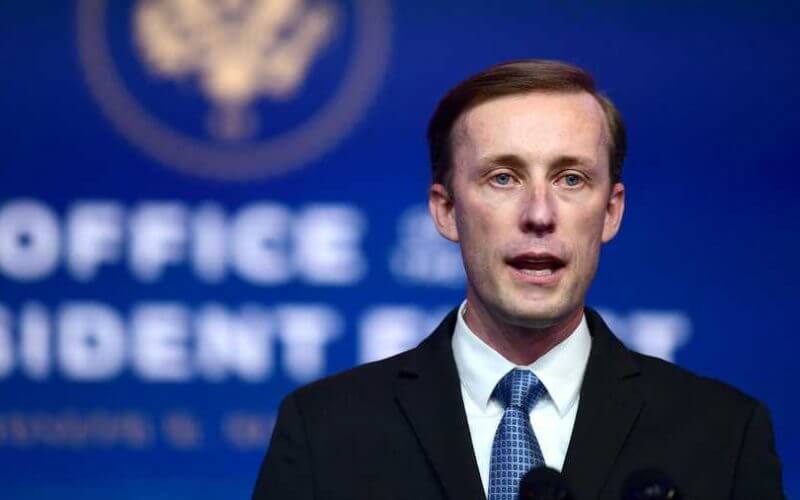The Biden administration has plans to negotiate terms with Iran’s regime to return at least five U.S. hostages who are being held primarily on espionage charges, according to White House National Security Advisor Jake Sullivan.
“We intend to very directly communicate with the Iranians about the complete and utter outrage, the humanitarian catastrophe that is the unjust, unlawful detention of American citizens in Iran,” said Sullivan to CBS News Sunday.
Sullivan stated that the administration has been in contact with Tehran about the hostage issue and does “intend to demand” their release but did not provide specifics on how this will be accomplished or what the administration might concede in exchange.
The hostage return is a priority for the Biden administration, said Sullivan, and no “long-term proposition where [Tehran] [continues] to hold Americans in an unjust and unlawful manner” will be accepted.
Iran’s Foreign Ministry Spokesman Saeed Khatibzadeh said the Biden administration has not been in direct communication with Iran about the hostage situation, as Sullivan suggested, but claimed Iran has only received communication regarding the issue through the Swiss embassy.
“The news of direct dialogue between Iran and the U.S. is not true. Some messages have been received from new U.S. administration through its interests section in Iran (Swiss embassy) and some foreign ministers from other countries to pursue this issue,” Khatibzadeh said, according to Iran’s news agency, Fars News.
However, Khatibzadeh did state that the release of Iranian hostages in the U.S. was of utmost importance to the regime, indicating that a hostage exchange may be on the horizon.
The Iranian regime initially gave the Biden administration a deadline of Sunday, February 21, to decide whether the U.S. will rejoin the original JCPOA.
The U.S. and Iran are now playing a back-and-forth game of who will bend to the pressure first.
As part of Iran’s strategy, it threatened to revoke the International Atomic Energy Agency’s (IAEA) additional protocol privileges as soon as February 23, which would prevent the IAEA from installing cameras at nuclear facilities and conducting “snap inspections” in undisclosed locations.
The IAEA was able to negotiate a three-month temporary extension allowing IAEA inspectors to remain in Iran, but inspection privileges will not look the same until the U.S. comes into full compliance with the JCPOA, according to Iran’s Foreign Minister Javad Zarif.
If the Biden administration rejoins the JCPOA, this will be a major reversal of Trump-era foreign policy, ignoring protests from many Iranians on the ground who view Trump’s maximum pressure strategy as effective in weakening the government.









